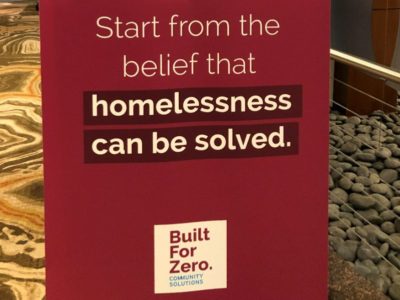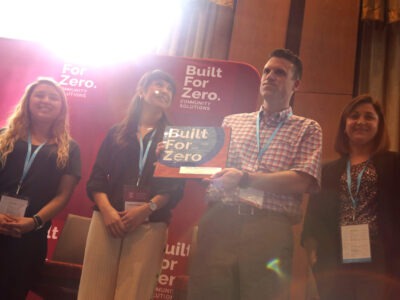
Rosanne Haggerty, the president of Community Solutions, was interviewed by Ashley McKinless and Zac Davis for the Jesuitical podcast, which focuses on a smart, Catholic take on faith, culture and the news. Their discussion explores the general public’s understanding of homelessness in the United States today, communities proving that homelessness is solveable, and how Rosanne’s work transitioned from a focus on building affordable and supportive housing to coordinated, system-wide approach to ending homelessness.
Below, we’ve included excerpts from their conversation:
“If you take anything away from this conversation, it should be that homelessness is solvable and that’s not what most people believe. I think we’ve been lulled into thinking that it’s an intractable problem. But we now have ample evidence that communities can solve it. Our organization is working with 98 counties and county regions across the country. And more than half are measurably, reducing homelessness, 14 have ended homelessness for one or more populations. What I think had been really this stubborn problem all along is that of failing to see this issue as a challenge of coordination, not so much of not having enough programs or if people want to be homeless. What the communities we work with have done differently is like treated it as a public health problem and just coordinated all the activities against the clear goal of eating homelessness.”
“It’s not just a public health issue because people experiencing homelessness have great health vulnerabilities. The longer your homeless, study show takes decades off your life. But because fundamentally it’s a problem that requires deep committed coordination and knowing people by name. And I was excited to be speak with you at Jesuitical because there’s a way we’ve seen that this very fundamental parts of Catholic social teaching around the encounter with the individual and even the popes call for encounter, you know, that coupled with good data. What characterizes communities who are getting the job done is they know everyone by name and have a commitment to the common good.”
Rosanne’s interview starts at 13:40. Listen to the full interview below.




